Spirit - Spirit
by Andrew Carver
published: 4 / 10 / 2011
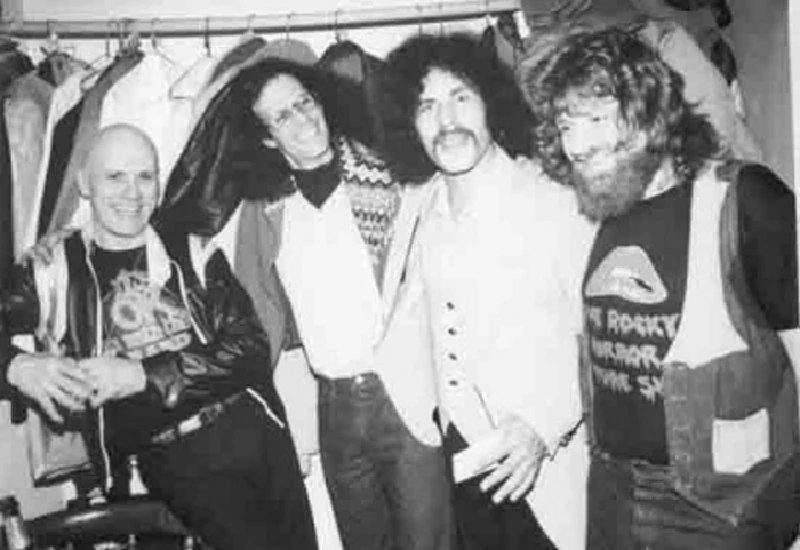
intro
Andrew Carver examines the career of late 1960's and early 1970's West Coast act Spirit, who have had recently had two albums of previously lost material, 'The Original Potato Album' and 'Tales from the Westside', at last released
Spirit are one of those bands whose commercial success never seemed to reach the heights that critical regard or even public reception seemed to have laid out for them. Even though they charted eleven albums in their first decade of existence, with a distinctly West Coast combination of jazz, folk and acid rock, their path was always a convoluted one. Even the member most associated with the band, guitar god Randy California, wasn’t on board for the band’s whole run. His career began in New York. He had a chance encounter with another guitarist, Jimmie James, in a music store and been summarily recruited to be one of his Blue Flames. James also gave Randy his stage name (he had been born Randolph Craig Wolfe) because there was another Randy in the band Randy Palmer - subsequently dubbed Randy Texas. Unfortunately for fans of “what if?” scenarios James was persuaded to go off to England by Animals bassist Chas Chandler and to try his fortune there. He did, after going back to his real name, Hendrix, and apparently had some success there. California returned to his eponymous home state. As it happened, his father Ed Cassidy was also a musician, a particularly capable drummer who had tried his hand with such jazz notables as Cannonball Adderley and Thelonious Monk, founded the Rising Sons with Taj Mahal and Ry Cooder. Prior to leaving for New York, step-father and son had formed the Red Roosters with Jay Ferguson (later of Jo Jo Gunne) and sometimes Canned Heat member Mark Andes (who went on to join both Heart and Jo Jo Gunne). Upon their return they reconvened, having already made the acquaintance of keyboardist John Locke. By 1968 they had released their self-titled debut. Album No. 2, ‘The Family That Plays Together’ went up to #22 on the Billboard charts; by the time of album No. 3, ‘Clear’, they were a big enough band to be considered for a good slot at Woodstock - playing just before California’s old bandmate Jimi Hendrix, which they rejected in favour of other touring obligations. The fourth album by the original quintet, ‘The Twelve Dreams of Dr. Sardonicus’, garnered the band even wider critical acclaim. Around this time, California injured his head in a riding accident, and a subsequent tour and album ‘Feedback’, were made without his involvement. By the time the 1970s rolled around, California was making solo albums, starting with 1972’s hard rock ‘Kapt. Kopter and the Fabulous Twirly Birds’. With Spirit officially breaking up in 1973, his next solo album was going to be a bit more ambitious. It was going to be a concept album, with a trenchant look into the dangers of autocratic society. And it was going to be about potatoes. Unfortunately for posterity, California’s label was disinterested in releasing the songs he had recorded with Cassidy as ‘The Adventures Of Kaptain Kopter And Commander Cassidy In Potato Land’, and the album was only heard on the tape underground, despite the entreaties of fans who had heard previews on the BBC or acetates that escaped to the outer world. In the meantime a re-release of old Spirit material had found favour on the charts and California was persuaded to come back into the fold by Cassidy. In the following years Spirit, featuring various line-ups, performed around the world. Fans in Britain seemed particularly keen, and the band signed to Beggars Banquet. In 1981 some of California’s ‘Potato Land’ material was released, albeit on overdubbed form. Although Spirit has faded from the minds of many over the years, the diehard fans remain, and their desire for the release of the ‘original’ ‘Potato Land’ album has apparently been unabated. Thus Floating World, a label responsible for a bevy of collections of off-album material by Spirit has released ‘The Original Potato Land’ upon the world. Since the master tapes have been lost, the album has been reconstructed from a wide variety of sources, some of which show off a few crackles, and buttressed with a generous helping of bonus tracks. It kicks off with with a brief swell of sound, with some piano and a bit of crackly spoken word, along with California singing some of the lyrics of ‘1984’ before heading into the album’s version of the song proper. California’s tremeloed vocals and jangling guitar make way for some of his patented fuzzy leads and wah work. At the 3:30-minute mark it reverts to the piano-style tune of the intro. The song’s tale of oppression cribbed from George Orwell’s famed novel sets the tune, but the album’s (somewhat daft) narrative really begins on the third track, ‘Exit 27’, with dialogue that starts off the journey of California and Cassidy’s alter egos into the eponymous Potatoland at a previously unknown highway turnoff, along with some ‘Kumbaya’ style potato-people chanting and the characters decision to turn right and left respectively in the hopes of finding something they couldn’t in the real world: “Love!” The thematic segue might be a bit thin, but ‘Turn to the Right’ features some twanging guitar, and yet another sizzling burst of leadwork from California. Then it’s on to more dialogue (involving a search for food “Hey look, there’s a giant eclair in the sky!” as ‘Everything Talks To Me (Donut House)’, a laidback track with some guitar work that sounds like it could be some type of pedal steel and Cassidy’s jazzy drums well to the fore. The daft dialogue returns, with a background of yelling and screaming as the potato people are sacrificed by being tossed into a giant fry pot. While the lyrics to ‘Fish Fry Road’, there’s more ace guitar sounds- some might wonder if a sudden segue into an abbreviated, keyboard-driven version of ‘Nature’s Theme’ (basically 'Nature’s Way' from '12 Dreams of Dr. Sardonicus’ redone) might be blamed on some lost tapes. It fades out fast, with our baffled heroes seeking information from a giant potato shaped like a phone. The stilted, processed voice of ‘Information’ does steer the song close (or perhaps closer) to novelty tune; its follow-up ‘My Friend’ steers clear of anything potato-related, and picks up the pace quite a bit, with its good-natured lyrics keeping pace with the bouncy music. It is followed by a suitably clap-happy version of Rufus Thomas’s ‘Walking the Dog’. Then it’s back to Potatoland, with giant potatoes in hot pursuit of our heroes, leading into ‘Lonely in Potatoland (Mashed Potatoes)’, with appropriately spud-themed lyrics, and a high-energy vocal performance from California, who manages a convincing howl despite the off-the-beaten track subject matter. It’s followed by an acoustic-driven version of ‘Nature’s Way’. ‘Salvation: Matter of Time: Suite’ must have been taken from one of the album’s dodgier sources, with quite a bit of popping and somewhat tinny vocals, but it’s a nice tune, with California dueting with himself in stereo and throwing out some super-speedy picking before shifting gear for some acoustic strumming. There’s a reprise of ‘1984’ and another ‘suite’, this time called ‘Oil-Slick Million Years Suite’, and an acoustic ‘Information’ (another ‘Reprise’ that one suspects was intended as a demo). It fits in nicely beside ‘It’s Time Now’, a song that paces acoustic fingerpicking and hand percussion next to some striking fuzz and a plea for understanding among little potato boys and little potato girls (all searching for the same thing, apparently). Then it’s onto the bonus tracks: The violin and acoustic guitar fuelled ‘You Know’ another version of ‘Donut House’ and a very tinny run through ‘Ain’t That Too Bad’, along with four covers recorded in 1972: ‘Devil’, ‘Shotgun’, ‘Get Out of My Life Woman’ and ‘Miss This Train’, as well as an interview clip with California and Cassidy. The second disc contains what appears to be the 1981 version Rhino edition, officially called ‘The Adventures of Kaptain Kopter and Commander Cassidy in Potato Land’. You can tell from the start off track, ‘We’ve Got A Lot to Learn’ that the listener is in for a substantially glossier experience, with backing vocals and saxophones aplenty. The next track, ‘Potatoland Theme’, shows clear signs of producers awash in dreams of disco glory, complete with handclaps and stroboscopic sounds. The tinkling piano and multi-tracked vocals of ‘Open Up Your Heart’ are also a fair distance from what Spirit fans were expecting from their Hendrixian hero in 1973, when they were originally laid down, and probably sounded even more dated in 1981. Nowadays it’s a pleasant but somewhat vapid tune, though California’s acoustic guitar picking has its moments. ‘Morning Light’ packs in more synths, and seems to snag a few melodies from ‘Nature’s Way’ and reprises the ‘Potatoland Theme’. There’s more synthetic noodling on ‘Potatoland Prelude’ - the original album credited two keyboardists, John Locke and Benji, and one can hear why, although California also lays down some piercing leads - the whole effect is a bit krautrocky. It’s followed by the gravel-voiced ‘Potatoland Introduction’, which also connects the Orwellian theme more directly with the potato theme, both lyrically and musically, with references to ministries, “War is peace, freedom is slavery,” telescreens and a potato named Winston. ‘Turn to Your Right’ inserts the goofy dialogue from the start of ‘Exit 27’ and the chanting potatoes, before kicking off the song proper, and then onto ‘Donut House’, ‘Fish Fry Road’ (which features saxophones and integrates the ‘Nature’s Way’ outro). The 1981 version of ‘Information’ inserts more sweeping sound effects, backing vocals and cuts. Then there’s another run through ‘My Friend’ before ‘Potato Land March Midnight Train’ - more chanting potatoes that segue into a country tune about being born on a midnight train and being oneself, as well as a snatch of the piano version of ‘1984’. The 1981 album ends with ‘Salvation’, which comes in about two minutes short of the suite on Disc 1. There are two more bonus tracks, alternative versions of the Potatoland Theme and ‘Turn To The Right’. Spirit enthusiasts will of course be interested in getting their hands on the ‘Original’ album, despite some minor fidelity problems. Non-fans should head to albums such as ‘The Family That Plays Together’ or ’12 Dreams of Dr. Sardonicus’ first. The other double-CD of Spirit tracks freshly on offer, ‘Tales From the Westside’, might given even Spirit fans pause. The 29 tracks hail from the 1990s, when the band was touring as a three-piece. Cassidy and California were joined by keyboardist Scott Monhan, whose low regard for the sound he was getting - “Between you and me, it sounded pretty bad” he says in his commendably honest liner notes - is lamentably accurate. No fault of his skills, but the tone is often best described as rinky-dinky. The song selection isn’t inspiring. There are a couple of patience-testing jams, and lamentably few classic tracks. Even then, the versions of songs such as ‘I Got A Line On You’ aren’t going to be anyone’s idea of definitive versions. It is, however interesting to hear California run through ‘All Along the Watchtower’ (even at more than 13 minutes). Strictly one for completists.
Band Links:-
https://en.wikipedia.org/wiki/Spirit_(band)Picture Gallery:-
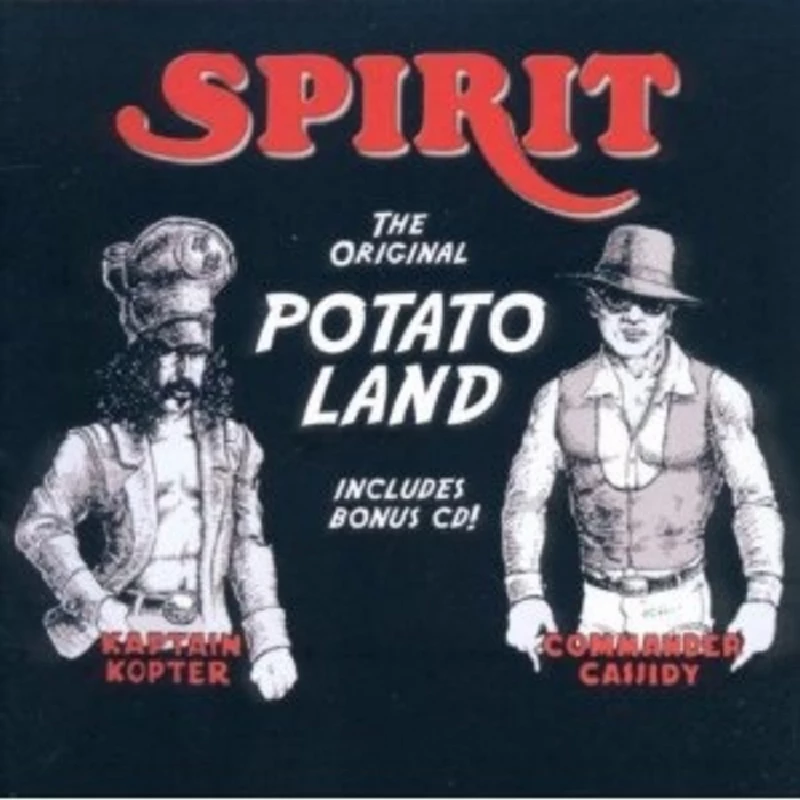
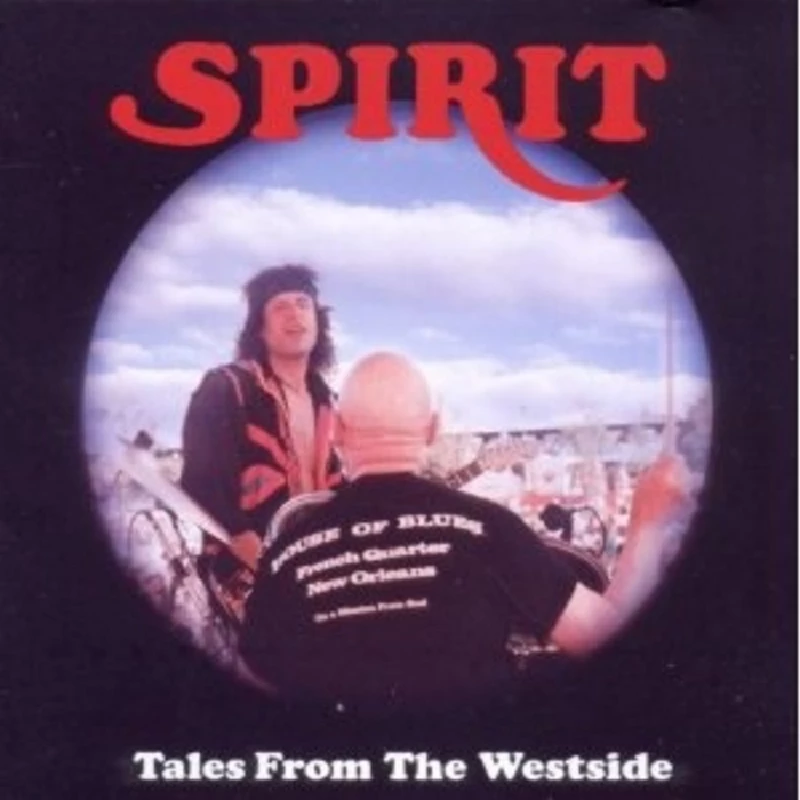
features |
|
Every album, every song (2023) |
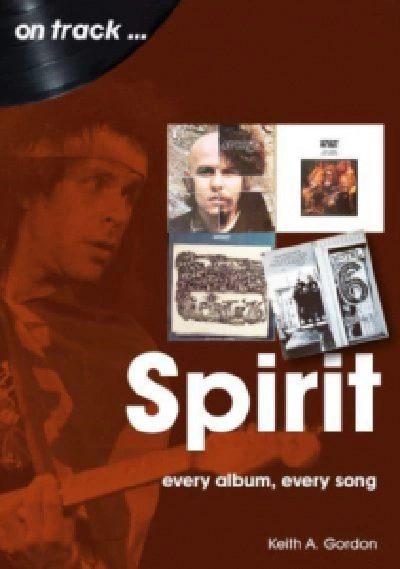
|
| Meticulously researched, the On Track series connects us to the bands we know and love. In ‘Raging Pages’ guest reviewer Nicky Crewe finds this exploration and celebration of the music of Spirit is a reminder of just how innovative and influential they were . |
reviews |
|
The Archive...An Introduction (2009) |
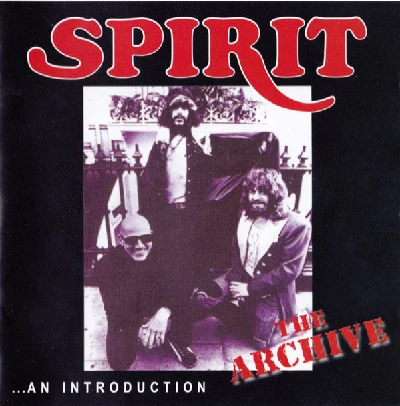
|
| Fine retrsopective album and introduction to 60s and 70s group Spirit, which compiles together tracks from seven of their alabums |
most viewed articles
current edition
Carl Ewens - David Bowie 1964 to 1982 On Track: Every Album, Every SongArmory Show - Interview with Richard Jobson
Colin Blunstone - Thalia Hall, Chicago, 16/7/2025
Bathers - Photoscapes 1
Visor Fest - Valencia, Spain, 26/9/2025...27/9/2025
John McKay - Interview
Billie Eilish - O2 Arena, London, 10/7/2025
Robert Forster - Interview
Sir Tim Rice - Interview
Loft - Interview
previous editions
Heavenly - P.U.N.K. Girl EPManic Street Preachers - (Gig of a Lifetime) Millennium Stadium, Cardiff, December 1999
Beautiful South - Ten Songs That Made Me Love...
Pixies - Ten Songs That Made Me Love...
Oasis - Oasis, Earl's Court, London, 1995
Paul Clerehugh - Interview
Prolapse - Interview
Trudie Myerscough-Harris - Interview
Doris Brendel - Interview
Peter Perrett - In Dreams Begin Responsibilities Interview Part One
most viewed reviews
current edition
Phew, Erika Kobayashi,, Dieter Moebius - Radium GirlsAmy Macdonald - Is This What You've Been Waiting For?
Sick Man of Europe - The Sick Man of Europe
Davey Woodward - Mumbo in the Jumbo
Alice Cooper - The Revenge of Alice Cooper
Lucy Spraggan - Other Sides of the Moon
Blueboy - 2
Cynthia Erivo - I Forgive You
Suzanne Vega - Flying With Angels
Bush - I Beat Loneliness
Pennyblackmusic Regular Contributors
Adrian Janes
Amanda J. Window
Andrew Twambley
Anthony Dhanendran
Benjamin Howarth
Cila Warncke
Daniel Cressey
Darren Aston
Dastardly
Dave Goodwin
Denzil Watson
Dominic B. Simpson
Eoghan Lyng
Fiona Hutchings
Harry Sherriff
Helen Tipping
Jamie Rowland
John Clarkson
Julie Cruickshank
Kimberly Bright
Lisa Torem
Maarten Schiethart